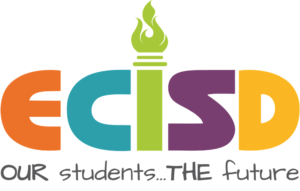By Public Impact®, December 9, 2019
For two Texas districts—Ector County ISD and Midland ISD—teacher shortages present an immense and ongoing challenge: Combined, the districts began the school year with 500 teacher vacancies. To give new teachers a jump-start into the profession, the districts are implementing Opportunity Culture® with paid teacher residencies in partnership with the University of Texas Permian Basin (UT Permian Basin). UT Permian Basin and its partner schools are the newest members in the University-School Partnerships for the Renewal of Educator Preparation (US PREP).
Opportunity Culture®, a model developed by Public Impact®, provides greater teacher support, gives excellent teachers the chance to lead small teams for higher pay, and helps attract and develop new teachers. The districts’ work will be a model for districts and education preparation providers nationwide to strengthen teacher pipelines collaboratively through paid teacher residencies.
US PREP is a coalition of 15 university-district partnerships focused on attracting, training and retaining high-quality, racially diverse teachers for underserved communities across the country. As a member in US PREP, UT Permian Basin will spend the next three years piloting, scaling, and sustaining the Teacher Preparation Quality Objectives, which will result in the training of teachers who are ready to meet the needs of their K–12 students. Taken together with the Opportunity Culture® model, candidates will receive compensation during their residency year.
“The College of Education at UT Permian Basin is thrilled to have the opportunity to work with Ector County ISD and Midland ISD as they implement the Opportunity Culture® initiative,” said Larry Daniel, dean of the college of education at UT Permian Basin. “We applaud our partner districts for seeking out this opportunity to invest in emergent teacher leadership development. This initiative dovetails incredibly well with our priorities as a US PREP coalition site and will go a long way in helping us recruit and retain more excellent teachers for the Permian Basin.”

The Districts
Ector County ISD, led by Superintendent Scott Muri, is located in Odessa, Texas. The district has 44 schools and 33,826 students, of whom about 77 percent are Hispanic, 16 percent are white, and 4 percent are African American; nearly 55 percent of the district’s students are economically disadvantaged.
“Our biggest challenge is finding high-quality educators,” Muri said. “With hundreds of teacher openings and an increasing number of teachers coming into education from other careers, we must find a way for our master teachers to increase their impact on their colleagues and, ultimately, students. We must also think more broadly about the ‘traditional teacher’ role in 21st-century learning designs. I have seen firsthand that Opportunity Culture® builds the capacity of teachers by creating new roles and empowering educator leadership.”
Muri, a member of Chiefs for Change, came to Ector County in spring 2019 after serving as Spring Branch ISD superintendent and implementing Opportunity Culture® there.

Midland ISD, led by Superintendent Orlando Riddick, has 40 schools and 26,000 students, of whom about 64 percent are Hispanic, 24 percent are white, and 8 percent are African American; 45 percent of the district’s students are economically disadvantaged.
“In Midland ISD, we are on a journey of transformation to becoming a System of Great Schools,” Riddick said. “That means supporting every school to be a great school, investing in 21st-century facilities, and developing and retaining talent. Opportunity Culture® is a crucial element of our lift to deliver world-class human capital that drives academic growth. We are honored to partner with US PREP, the Gates Foundation, UTPB, and Ector County ISD to deliver for the Permian Basin.”
How Opportunity Culture® Works
The national Opportunity Culture® initiative, founded by Public Impact® and now in more than 28 sites in nine states, extends the reach of excellent teachers and their teams to more students, for more pay, within schools’ recurring budgets. These Texas districts will provide aspiring teachers with paid, yearlong residencies on teams led by multi-classroom leaders—excellent teachers who continue to teach part of the time while leading small instructional teams with intensive coaching and support, for more pay. Paid residencies provide a way to enter the teaching workforce for candidates who need to earn income while obtaining degrees and certification.
Each Opportunity Culture® school forms a design and implementation team of teachers and administrators that determines how to use Multi-Classroom Leadership and other roles to reach more of their students with excellent teaching. Ector County and Midland will meet jointly with Public Impact® to plan and implement a cost-effective transition to the new model over the next two years.
The districts are designing their Opportunity Culture® plans now for implementation in fall 2020 in eight schools in each district.
The school-level design teams reallocate school budgets to permanently fund substantial pay supplements to those in Opportunity Culture® roles, in contrast to temporary grant-funded programs. In other districts, high-performing Opportunity Culture® schools have made careful funding decisions to increase student growth without narrowing the curriculum.
In 2018, researchers at the Brookings Institution and American Institutes for Research released a study showing the effect Opportunity Culture® can have. Student learning gains in classrooms that were part of multi-classroom leader teams reached the 75th to 85th percentile in math, and in six of the seven statistical models, from 66th to 72nd percentile in reading, up from the 50th percentile in the same teachers’ classrooms prior to joining MCL-led teams.
A grant from the Bill & Melinda Gates Foundation will support training for the school districts and their university partner to design and implement the Opportunity Culture® model. Funding from the Gates Foundation will not be used for pay supplements for multi-classroom leaders or other Opportunity Culture® roles, but for planning and associated professional development.
Read the full press release here.
